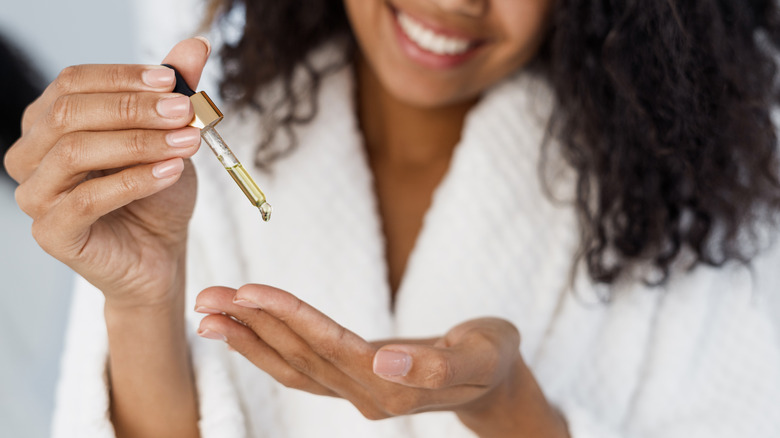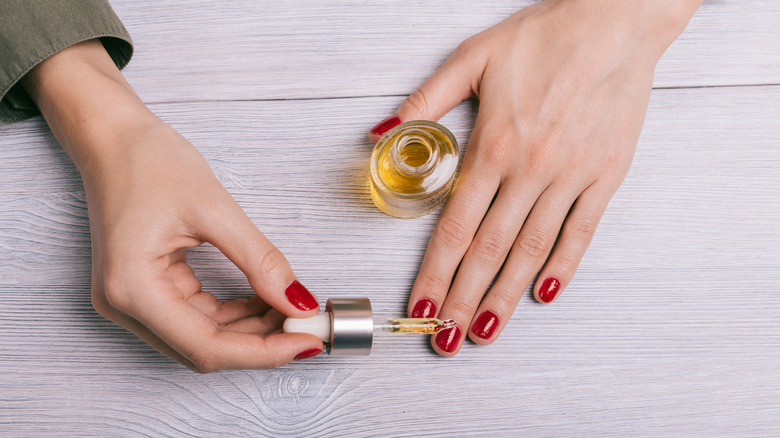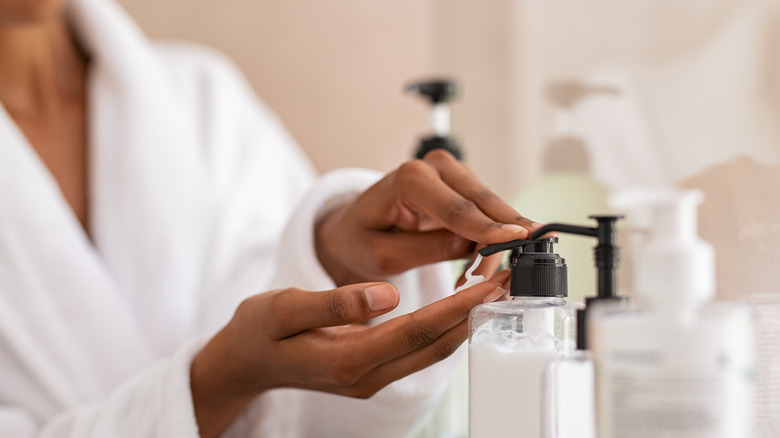Can Cuticle Oil Actually Help Your Nails Grow? We Asked A Dermatologist To Find Out
When it comes to nail care, we hear a lot of promises from a lot of different products. Whether we're looking to strengthen our nails, help them grow faster, or just keep them as healthy as possible, trying to find the right remedy can feel a bit hit or miss. For example, the word on the street is that cuticle oil, when used regularly, can help your nails grow. But can it really? Is that all it takes to have long, healthy nails?
"Cuticle oil does not specifically stimulate nail growth," board-certified dermatologist Hadley King told InStyle. "But it can help to keep the nails and the skin around the nails healthy by optimizing the skin barrier function."
Like many things on the body, the healthier it is, the better it's going to work and look. To understand more about cuticle oil and what it can and can't do, Women exclusively spoke to NYC board-certified dermatologist and founder of MOMADerm, Dr. Charles Puza, who told us what you can expect from using cuticle oil.
It's not really about the cuticle oil
Although there are a lot of great brands out there that are chock-full of things like jojoba, flaxseed, or safflower oil, it's actually not so much about the oil itself, but what it brings to the equation. "Cuticle oil probably isn't helping your nails grow because of any particular oil/ingredient," Dr. Puza told Women. "The oil, as a hydrating and protective ingredient, is likely helping to [protect] the cuticle and proximal nail plate (the hard nail portion closest to your hand)." As Puza explained, when this part of the nail is protected, you're strengthening it as much as possible — and that's what healthy nails and nail beds need.
In regards to what type of cuticle oil to buy, you don't have to spend a lot. "I love to get patients and followers budget options," says Puza. "I don't think anyone needs a special 'cuticle oil.' Instead, applying thick emollients (like Aquaphor, Vaseline, or CeraVe healing ointment) to the cuticle helps to protect the nail." Although Puza also admits he's not the biggest fan of the slugging trend, he did say that nail slugging has some benefits.
You can use other moisturizers
Because the health of the nail and nail bed are dependent upon hydration, you don't need to use oils if you're not a fan. After all, if you accidentally knock over a bottle, that stuff is going to stain most fabrics. "Thick creams and moisturizers are very helpful for nail strength," Dr. Puza exclusively told Women, adding that if someone suggests nail-related vitamins to help with nail health or growth, you shouldn't buy into it. "Most supplements have been debunked for nail health," said Puza. "I don't recommend 'nail vitamins' to my patients."
Ultimately, yes, you should be using something regularly to hydrate your nails and nail beds. Not because it's going to result in faster nail growth, but because healthy nails are important. Puza recommends protecting your hands (and your nails) with gloves if you do a lot of work in water, and seeing a dermatologist if your nails become weak or abnormal in any way, noting that such changes could be a sign of a possible illness.


